|
|
Invited speakers
|
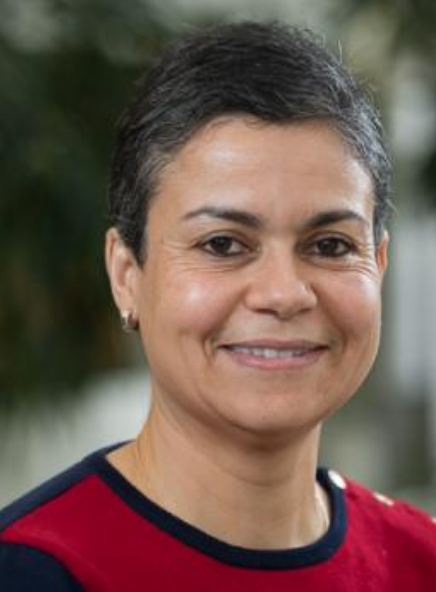
Dr.
Kawtar Hafidi, Associate Director of Argonne National Lab, USA.
|
Title: From Africa to America: A quest for excellence
Kawtar Hafidi is Argonne National Laboratory’s Associate Laboratory Director in the Physical Sciences and Engineering directorate. Prior to this appointment she was Division Director of Physics. Previously, Kawtar was the Associate Chief Scientist for Laboratory Directed Research and Development (LDRD). She is an experimental nuclear physicist with more than 20 years of experience in leading and conducting fundamental research at major accelerator facilities in the United States and Europe. Kawtar had been on detail assignment to the US Department of Energy, Office of Science, Office of Nuclear Physics. She was responsible for the management, oversight, and review of instrument and experiment construction projects in the United States and abroad. Kawtar is a fellow of the American Physical Society. She has received numerous awards recognizing her effective advocacy for increased diversity, both at Argonne and within the broader physics community. She is a co-author of more than 200 publications and has given more than 60 invited talks at international conferences, universities, and laboratories. Kawtar’s research focuses on the experimental study of the structure of nucleons and nuclei in terms of their basic constituents, namely quarks and gluons (also called partons) within the framework of the theory of strong interactions. Her work encompasses measurements of nuclear modification effects — three-dimensional imaging of nucleons and nuclei, the mechanisms of “vacuum” confinement, and tests of charge symmetry violations. Kawtar earned her PhD in nuclear physics from the University of Paris XI and a bachelor degree in Mathematics and Physics from Mohammed V University in Morocco.
|
|
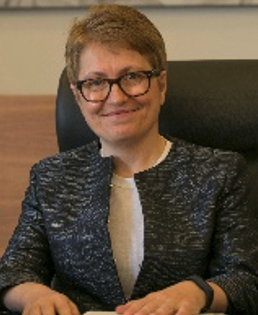
Prof.
Sondan Durukanoğlu FEYİZ ,
President of Kadir Has University, Turkey
|
Title: An Incredible Adventure Of A Woman On The Thorny Roads Of Science, Technology And Engineering
Prof. Sondan Durukanoğlu Feyiz graduated from the Physics Department of Istanbul University in 1989. She completed her Master’s in Physics at the University of Wisconsin (1992), and her Ph.D. at the Physics department of Kansas State University (1999). From 2000, she continued her academic career as an assistant professor at Istanbul Technical University, becoming an associate professor there in 2006. During her work at Istanbul Technical University, Feyiz has held numerous positions such as Member of the Senate Accreditation Committee (2002-2006); Visiting Scientist at Kansas State University (Summer 2002); Associate Editor in Chief of Istanbul Technical University Bulletin (2002-2007); Visiting Assoc. Prof. of Physics at Massachusetts Institute of Technology (MIT) (2007-2009); Senior Researcher at Feza Gürsey Institute (2007-2009). In 2011 she became a professor at Sabancı University where she served as the Vice President, responsible for Education, International Relations, Individual and Academic Support and Summer Schools (2011-2018), as an Executive Board Member of the Nanotechnology Research and Application Center (2014-2016), and as the Chair of the Quality Assurance and Strategy Committee (2015-2018). She has been the president of Kadir Has University since 2018.
Prof. Sondan Durukanoğlu Feyiz, who was the only female in 1991 to receive the Ministry of Education scholarship to study abroad in the field of physics (1991-1995), was also a recipient of the TUBİTAK (The Scientific and Technological Research Council of Turkey) Research Fellow Support Funding (BİDEP scholarship) and received the TÜBA (Turkish Academy of Sciences) Coursebook Translation Award (2010) and Turkish Physical Society Honor Award (2019).
Prof. Dr. Sondan Durukanoğlu Feyiz is working on Mechanical, Thermodynamic, Electronic and Structural Properties of Metal Nanowires and Nanotubes.
|
|
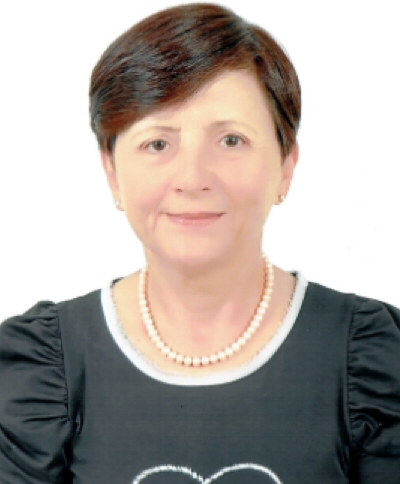
Prof. Najoua Kamoun
University
of Tunis, Tunisia
|
Title: Synthesis of low cost nanomaterials for potential applications
Prof. Dr Najoua Turki-Kamoun
is a full Professor at the Faculty of Sciences of Tunis (FST) University of
Tunis El Manar Tunisia. Her academic research focuses on Transparent
conductive oxides (TCO), binary semiconductors; ternary and quaternary
nanomaterials (powder and thin layers) for opto-electronic applications such as
photocatalysis, gaz sensors, solar cells, UV and IR detectors. Nanomaterials and
thin films are grown by different low cost techniques (spray pyrolysis, chemical
bath deposition (CBD), spin coating, electrodeposition and hydrothermal). In the
period 2013-2014 she occupied the post of General Director of Physico-
Chemical Analysis Institute (INRAP) in the Technopole of Sidi Thabet. She was
a vice President of AUF( Agency Union of Francophony) COMARES (for
MAGHREB : 2013-2015). From 2013-2020, she was a representative of the
Ministry of Higher Education and Scientific Research on the board of directors
of the National Metrology Agency (ANM).
In 2016 she was elected a TWAS (The World Academy of Science) full
member. She is a TWAS Membership Advisory Committee (MAC) in Physics
(2018‐2022).
Since 2015 she’s elected as ARA (American Romanian Academy of Sciences
and Arts) member and since 2018 she is an International UK Research and
Innovation Peer Review.
|
|
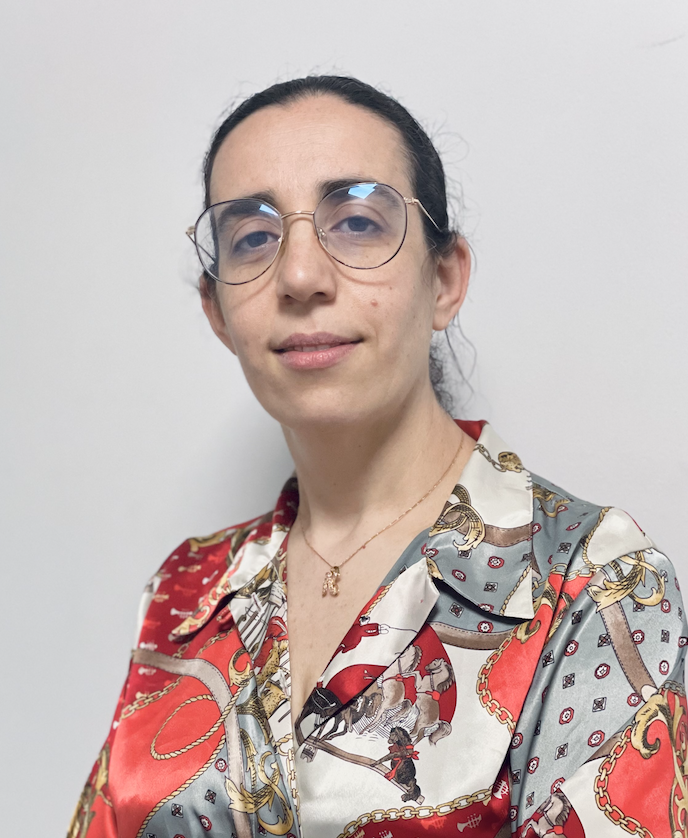
Dr.
Naoual Diouri
Administrative and financial director, Prime Minister, Morocco
|
Title: Exploit scientific research in society development
Born in 1981 in Fez, Morocco, Dr. Naoual DIOURI obtained her master's degree in physics of materials and Nanostructures at the Sidi Mohammed Ben Abdellah University in Fez after her engineering studies in the field of the environment. In 2014, in joint supervision between the University of Pretoria in South Africa and the University of Sidi Mohammed Ben Abdellah in Morocco, Naoual obtained her PhD in materials science and industrial processes.
The most main research focus lies in the Physico-Chemical, Mechanical, Thermodynamic, Electronic and structural properties of Carbon Nanotubes and Organic Nanocomposites.
Believing in the important role and effect of science and scientific research in improving lives and inspiring the nation, as well as contributing to support strategic decisions, Dr. Naoual has focused towards work in the non-academic by probing and understanding the needs that impact society. As such, she held different responsibilities in several structures under the supervision of the Moroccan Prime Minister.
In 2015, she held the position of project manager ensuring the implementation of projects for the economic and social promotion and development of the southern Provinces of the Kingdom, she then occupied the position of head of monitoring and evaluation department of infrastructure projects and income-generating activities.
In 2017, she was the first woman to hold the position of administrative and financial director responsible of managing projects in the southern regions.
|
|
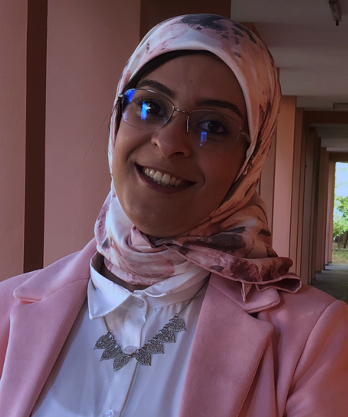
Dr.
Noha Sabi
Karlsruhe Institute of Technology, Karlsruhe, Germany
|
Title: The importance of Aluminum metal properties as the negative electrode for Aluminum batteries.
Dr. Noha Sabi received her master degree in functional materials from Cadi Ayyad University and PhD in electrochemistry/materials for batteries from Cadi Ayyad University (UCA) Marrakech, Morocco in collaboration with Mohammed VI Polytechnic University (UM6P) Benguerir, Morroco. She was awarded with the best oral presentation prize from Fourth edition of the biannual Conference on materials and renewable energies conference (2017). In 2019, she was a visiting scientist at the Pacific Northwest National Laboratory (PNNL), Washington. She is currently a post-doctoral fellow research within the Materials synthesis group at the Karlsruhe Institute of Technology (KIT), Karlsruhe, Germany.
|
|

Prof.
Michael Altman
HKUST,
Hongkong
|
Title: Interfacial And Strain Effects On Charge Transport In Graphene Studied By Low Energy Electron Potentiometry
Professor Michael
Altman is Professor and Head of the Department of Physics at the
Hong Kong University of Science and Technology. He obtained his
PhD from Brown University in 1988 for pioneering investigations
of surface reconstruction and phase transitions using surface x-ray
diffraction. As a Humboldt Fellow at the Technical University of
Clausthal from 1989-90, he was a co-inventor of spin polarized low
energy electron microscopy for surface magnetic imaging. He current
interests are in the structure, defects and elastic properties of
two-dimensional materials, dynamics of Au nanoparticle catalysis,
and theory of image formation in cathode lens microscopy. He has
served on the Editorial Boards of Ultramicroscopy, Surface Science
and Surface Review and Letters and is Fellow of the American Physical
Society.
|
|
-

Prof.
Thomas Greber
Zurich University, Switzerland
|
Title: 2D Distillation: Synthesis of better hexagonal boron nitride on a catalyst
Professor Thomas Greber was Born and educated in Switzerland. He obtained his PhD at ETH Zürich on Two Aspects concerning 4f impurities on metals in 1990. From 1991 to 1994 he was Humboldt and SNF Gastforscher at the Fritz-Haber-Institut in Berlin, where he worked on non-adiabatic gas surface reactions. Since 1995 he is at the Physik-Institut of the University of Zürich. His main interests are sp2 hybridized single layer templates like hexagonal boron nitride on transition metals and molecules like magnetic endofullerenes on such surfaces that he investigates with photoemission, scanning tunneling microscopy and squid magnetometry. http://www.physik.uzh.ch/~greber/
|
|
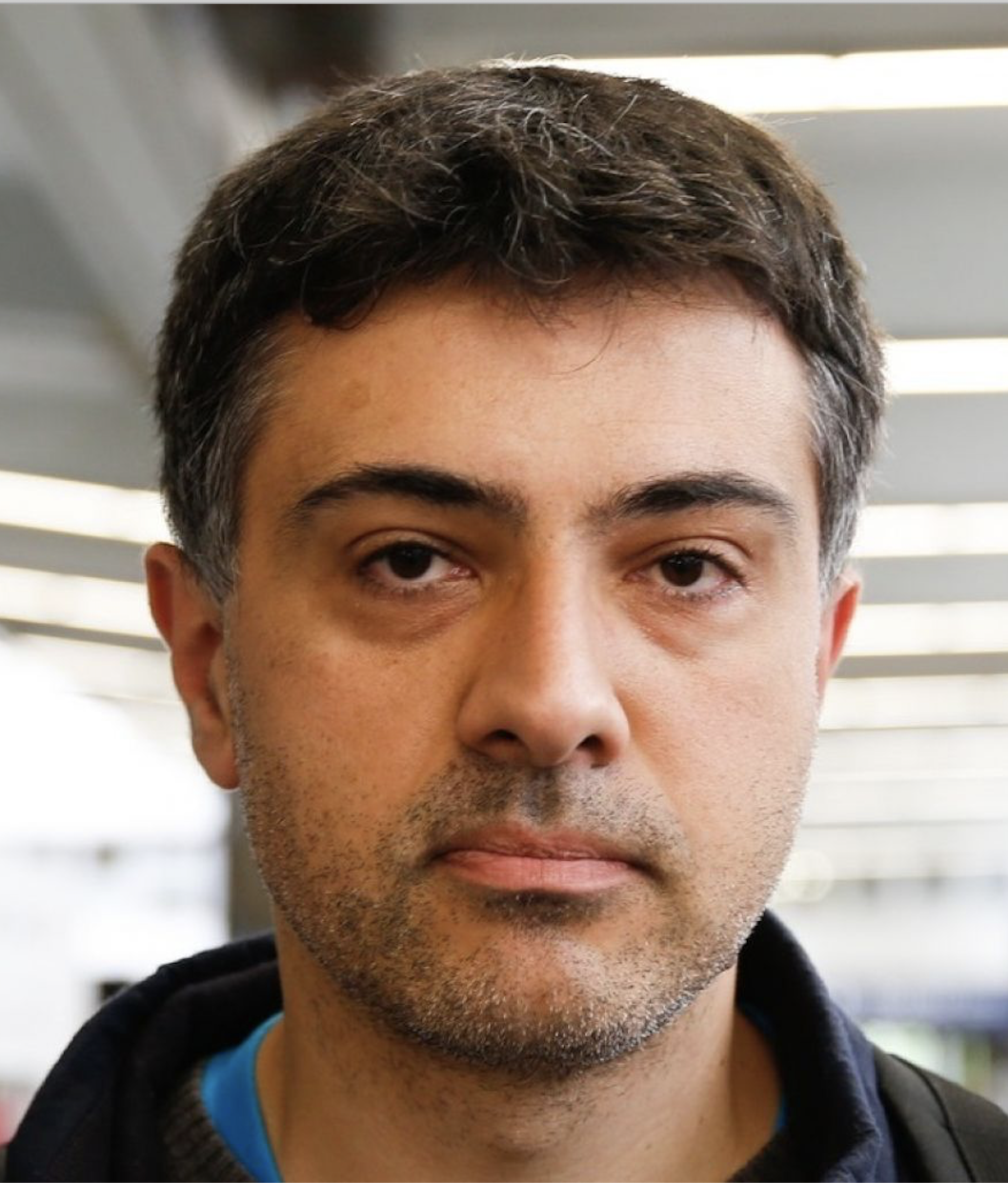
Dr.
Sébastien Lebègue
LPCT,
Nancy, France
|
Title:Some recent advances in 2D materials and surface science seen through ab initio calculations
After completing a PhD (2000-2003) at the IPCMS-Strasbourg on the development of the GW approximation under the supervision of M. Alouani and a postdoc (2003-2005) in the group of O. Eriksson (Uppsala, Sweden), Sébastien Lebègue obtained a CNRS "Research Fellow" position in Nancy (France) in 2005 and was promoted to Research Professor in 2017. SL is developing and using ab initio methods to understand the electronic structure of solid state compounds, like layered compounds, 2D materials, and surfaces. In particular, SL has developed an expertise in methods going beyond standard density functional theory concerning van der Waals forces (semi-empirical corrections to DFT,
random phase approximation), excited states properties (GW method, Hubbard-I, Bethe-Salpeter equation), which are oftenly needed to describe in a realistic way the systems of interest.
|
|
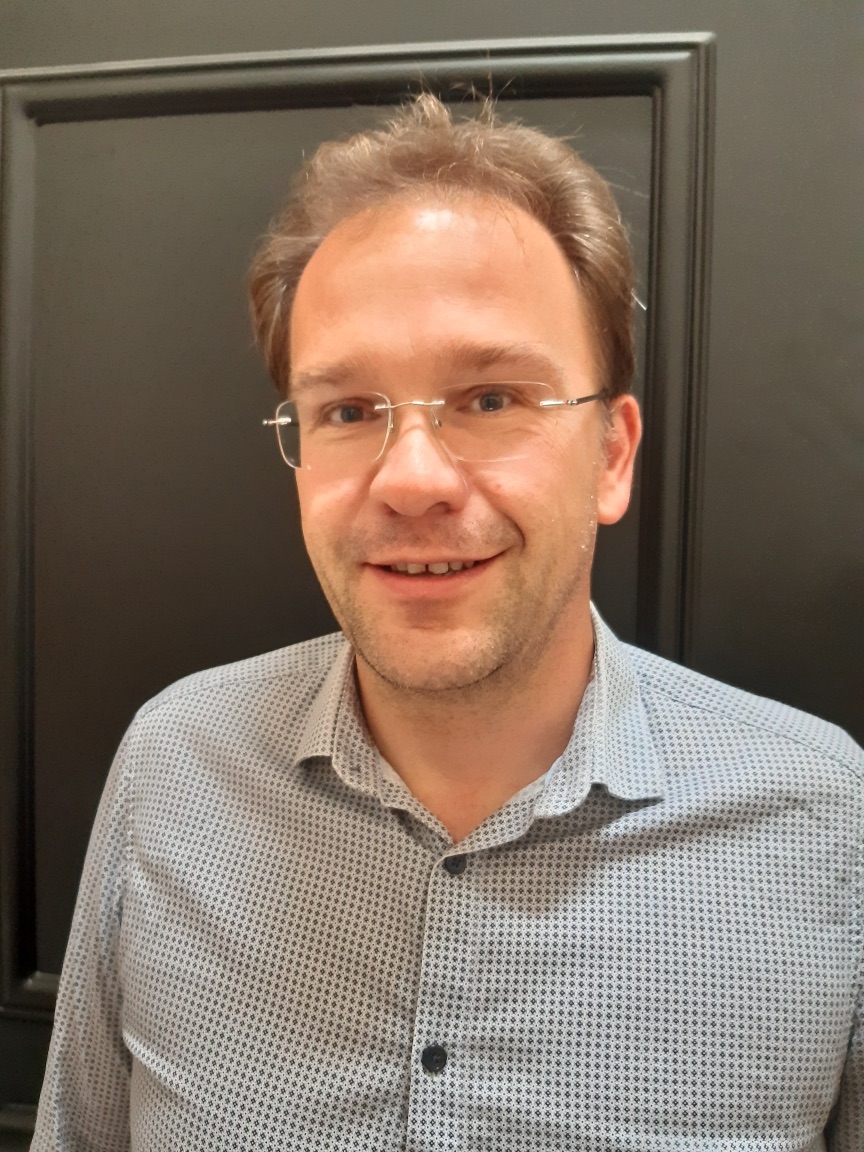
Dr.
Yannick
J. Dappe
CNRS, CEA, France
|
Title:
Dr. Yannick J. Dappe obtained his PhD at Strasbourg University in 2002 on the theory of nonlinear optics on metallic surfaces. He went to the group of Prof. F. Flores at the Autonomous University in Madrid (2004-2008) to learn Density functional Theory (DFT) methods and developed expertise in theory of van der Waals interactions in graphene and carbon materials, and electronic properties of molecules on surfaces. Since 2008, he is CNRS researcher, now at the Condensed Matter Physics Laboratory (SPEC) of the CEA Saclay. His main research interests focus on the theoretical study of graphene and 2D materials, and molecular electronics, using DFT and Keldysh-Green methods.
http://iramis.cea.fr/Pisp/yannick.dappe/
|
|
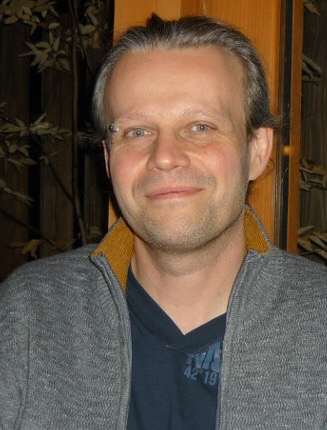
Dr. Stéphane Campidelli
CNRS, CEA, France
|
Title: Synthesis and properties of “bottom-up” Graphene Quantum Dots (GQD)
Dr. Stéphane Campidelli received his DEA in 1998 from Aix-Marseille University. After a short period in industry he started his PhD in 2000 on fullerene and dendrimer chemistry under the supervision of Prof. R. Deschenaux at the University of Neuchâtel (Switzerland). In 2004, he joined the group of Prof. M. Prato at the University of Trieste (Italy) for a post-doctoral fellowship on the chemistry of carbon nanotubes. In January 2007 he moved to CEA-Saclay where he is currently working as researcher at LICSEN (Laboratoire d’Innovation en Chimie des Surfaces et Nanosciences”. In 2014 he received his HdR “Habilitation à Diriger des Recherches” from the University Paris-Sud XI. He has co-authored ca. 100 articles, 8 book chapters and 4 patents.
His research interests are focused on chemistry of carbon nanotubes, graphene, fullerene and porphyrins for molecular electronics, optics and renewable energy applications. He is also interested in self-organization, macromolecular and supramolecular chemistry.
https://iramis.cea.fr/Pisp/104/stephane.campidelli.html
|
|
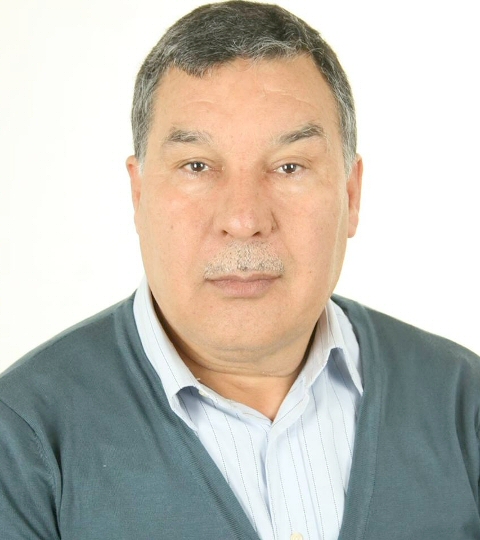
Dr.
Mocef Said
Monastir University, Tuinisa
|
Title:Theoretical investigation of electronic and magnetic properties of 2D materials, as promising candidates for device applications
Moncef SAID is professor of condensed matter physics at the University of Monastir, Tunisia.
He obtained his PhD thesis of Science in 1987 at the University of Paris 7. From 1988 to 1990, he was Humboldt and Max plank fellow at the FHI in Berlin. From 1991 to 1994 he was senior scientist respectively at the CEA- Saclay (Paris), University of Aarhus, Denmark, IEMN, Lille and the University of Modena, Italy. He was from 1998 to 2005 a Regular associate membership of the AS-ICTP, Trieste, Italy. Since 1998; he is Professor at the faculty of Sciences, University of Monastir. He is director of the laboratory of Condensed Matter and Nanosciences, and member of the local and national commissions for the evaluation of research and education in Tunisia. His recent research activities focus on the theoretical study of structural, vibrational, optoelectronic and magnetic properties of two-dimensional (2D) materials and nanostructure systems, as promising candidates for device applications. The calculations have been carried out using the DFT, GW approximation, RPA and Monte Carlo simulations. He co-authored around 180 papers published in leading refereed international journals.
|
|
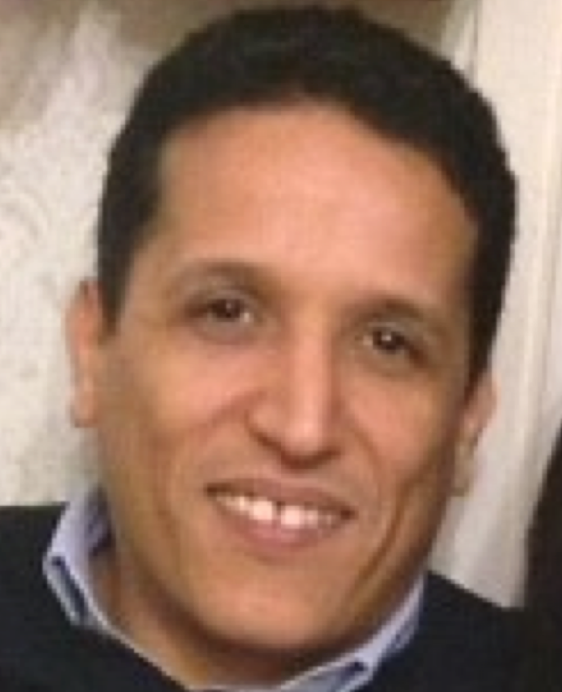
Dr.
Moulay
Tahar Sougrati
CNRS, France
|
Title: Anionic Redox In Li-on Cathode Materials, Spectroscopy Point Of View
Dr. Moulay Tahar SOUGRATI is a CNRS Research Engineer. He is in charge of the Mössbauer spectroscopy platform of Charles Gerhardt Institute (ICG). His work is focused on the application of Mössbauer spectroscopy to the characterization of materials for different topics such as Geology, Inorganic Chemistry and especially in the field of energy storage and conversion. Since 2009, He has been working on different families of anode and cathode materials for Lithium and Sodium ion batteries including phosphates, sulfates, oxides, intermetallic alloys etc. He contributed to investigation of reaction mechanisms using operando Mössbauer spectroscopy. He is also applying Mössbauer spectroscopy to iron-based precious-metal-free catalysts for the oxygen reduction reaction. He is a member of the French Mössbauer Group (GFSM) and He is actively involved in the European (ALISTORE) and the French (RS2E) networks for electrochemical energy storage. A significant part of his work is carried out within international collaborations.
|
|
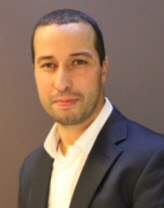
Dr.
Abdelfettah Mahmoud
Liège University, Belgium
|
Title: High Capacity, Long-term Cycling And Safe Zn-ion Batteries Using V2o5 Cathode Material
Dr. Abdelfattah Mahmoud is a group leader at GreenMat Lab of the University of Liège (Belgium) since 2015. His research concerns the development of the battery materials for Alkali-ion batteries, he is in charge of the analytical platforms of electrochemistry and Mössbauer Spectroscopy. Before joining the University of Liège, Abdelfattah was a Postdoctoral researcher for 2 years at Forschungszentrum Jülich, JCNS-2 (Germany). His research focused on the characterization of electrochemically active materials by nuclear resonance and neutron scattering techniques. He graduated and obtained his Ph.D. in Materials Science in December 2012, from Cadi Ayyad University in Marrakech (Morocco). His Ph.D. focused on the development of three-electrode materials (MnSn2, LiCo2/3Ni1/6Mn1/6O2, Li4Ti5O12) for high energy density lithium-ion batteries. He has been visiting researcher in many research centers, laboratories, and Universities: Oak Ridge National Lab (the USA, 2018), Montpellier University (France, 2011), and the Institute of Material Science of Madrid (Spain 2010 and 2012). He authored and co-authored more than 81 peer-reviewed papers, 2 patents, more than 90 conference papers, invited talks, and extended abstracts.
|
|
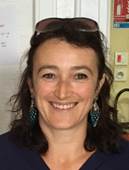
Dr.
Valérie Pralong
CRISMAT-CNRS,
Caen, France
|
Title: Exploration of Li-P/B-S-O/Cl system for discovery of new solid electrolyte
V. Pralong’s topic is to explore and prepare new materials, new structures as well as tuning their physical or chemical properties of materials by soft chemistry or electrochemistry in order to generate original framework in the domain of the energy storage, focusing on the ionic conductors. Transition metal polyanionic frameworks, oxides as well as sulfides are explored as electrode materials for Li/Na/K ion batteries as well as solid state electrolyte for All Solid State Battery. This topic has been the subject of 170 articles in peer-reviewed journals and 10 patents these last ten years. Since 2010, she has managed more than 15 national, EU and international research programs, supervised 8 PhD as well as 10 young researchers and co-supervised 7 PhD students. She is currently CNRS Director of Research and head of Energy Storage Materials team.
|
|
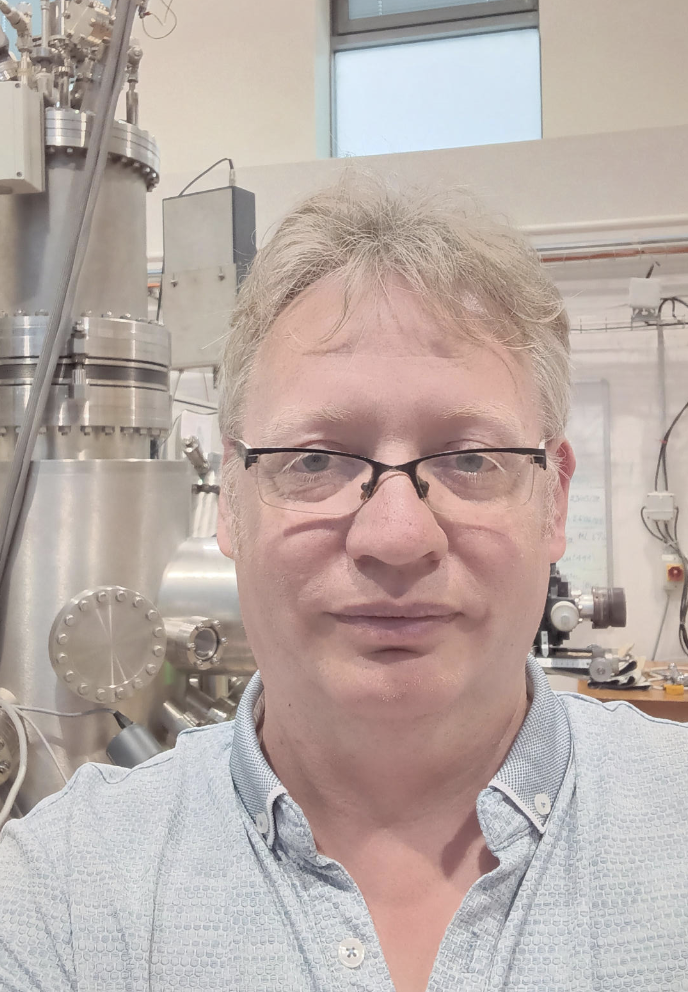
Prof.
Jérome Lagoute
Paris Cité University,
France
|
Title: Electronic Properties Of Sharp Junctions In Nitrogen Doped Graphene.
Dr. Jérôme Lagoute obtained his PhD in 2003 at Université Paul Sabatier, Toulouse, France. His thesis was dedicated to Scanning Tunneling Microscopy (STM) study of molecular wires on surfaces and tunnel current fluctuations under the supervision of Sébastien Gauthier at CEMES laboratory. From 2003 to 2006 he joined the group of Stefan Fölsch at Paul Drude Institute in Berlin for a postdoctoral position. During this period, he worked on atomic manipulation and spectroscopic study by STM of artifical atomic nanostructures. Since 2007 he is CNRS researcher at Laboratoire Matériaux et Phénomènes Quantiques at Université Paris Cité. His current research is focusing on doping and defects of two-dimensional materials and molecules on surfaces studied by STM.
|
|
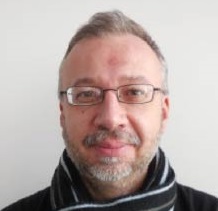
Prof.
Philippe Sonnet
Haute Alsace University
Mulhouse, France
|
Title:Molecular adsorption on 2D layer
Philippe Sonnet is Professor at the Mulhouse Materials Science Institute (IS2M), a CNRS-University research unit located in Mulhouse (Alsace-France) .
He received his DEA in 1995 from Strasbourg University and his PhD from Haute-Alsace University in 2000.
He is the leader of the multi-scale numerical simulations group since 2005.
Within numerical simulations at the atomic scale (DFT, Monte Carlo, Molecular Dynamics),
the activity of the group focus on structural and electronic properties and functionalization of 2D crystals (silicene, germanene),
adsorption properties of microporous materials (zeolites) and molecular adsorption on 2D insulating layer.
|
|
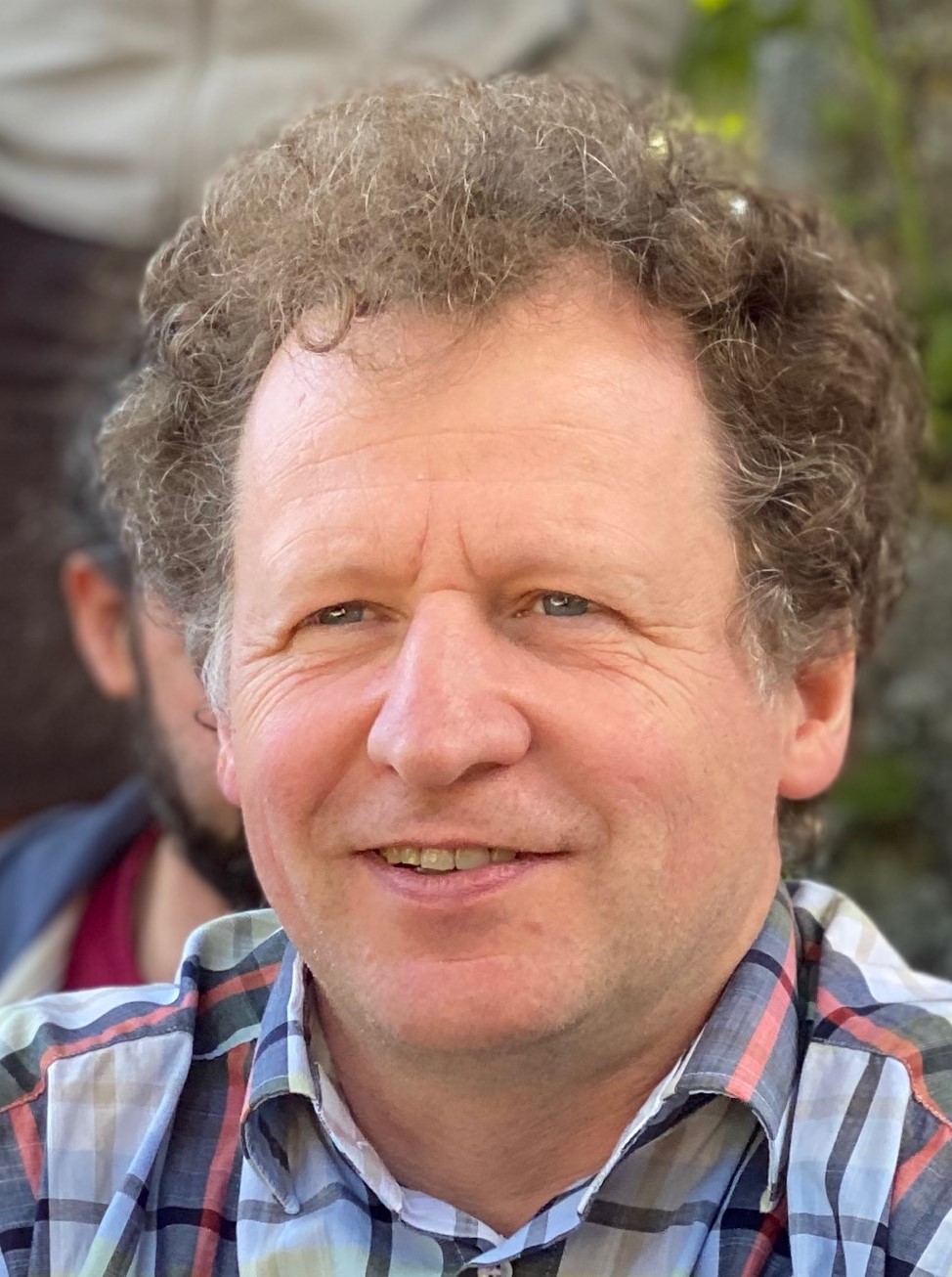
Prof.
Guy Trambly de Laissardière CY Cergy Paris University,
Cergy, France
|
Title:Electronic, Magnetic And Quantum Diffusion Properties In Twisted Bilayer Graphene
Guy Trambly de Laissardière is an associate professor in condensed matter physics theory at Laboratoire de Physique Théorique et Modélisation (LPTM), CY Cergy Paris Université / CNRS, Cergy-Pontoise, France. He received his PhD in 1996 at the University J. Fourier (Grenoble, France) in the group of Didier Mayou with a thesis on the electronic properties of quasiperiodic materials. His research activity mainly deals with the electronic confinement, magnetism and quantum transport in graphene, related 2D materials, twisted bilayer and quasiperiodic tilings.
https://trambly.u-cergy.fr/
|
|
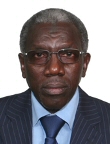
Prof.
Issakha Youm
University
Cheikh Anta DIOP University, Dakar,
Senegal
|
Title: Dye-sensitized Solar Cells using chrysanthemin pigment: a combined computational and experimental study
Professor Issakha Youm holds a BSc degree in physical sciences, a MSc in applied physics, a PhD degree in solar energy, and a higher Doctor of Science degree in solid state physics from University Cheikh Anta DIOP of Dakar, Senegal (UCAD). He has been awarded a scholarship from the French government as a visiting scientist at the University of Montpellier II, France, and a Fulbright senior scholar award at the Institute of Energy Conversion (IEC), University of Delaware, USA. He also held visiting appointments as regular and senior associate at the Abdus Salam International Centre of Theoretical Physics (AS-ICTP), Trieste, Italy. His specialization is on Condensed Matter Physics and Renewable Energy, and he has co-authored more than 60 refereed publications.
At the administrative level, Prof. Youm held positions such as head of physics department and Director of the Centre of Studies and Research in Renewable Energy (UCAD). His is currently member of the International Solar Energy Society (ISES), African Material Research Society (A-MRS) and African Network on Solar Energy (ANESOLE).
|
|
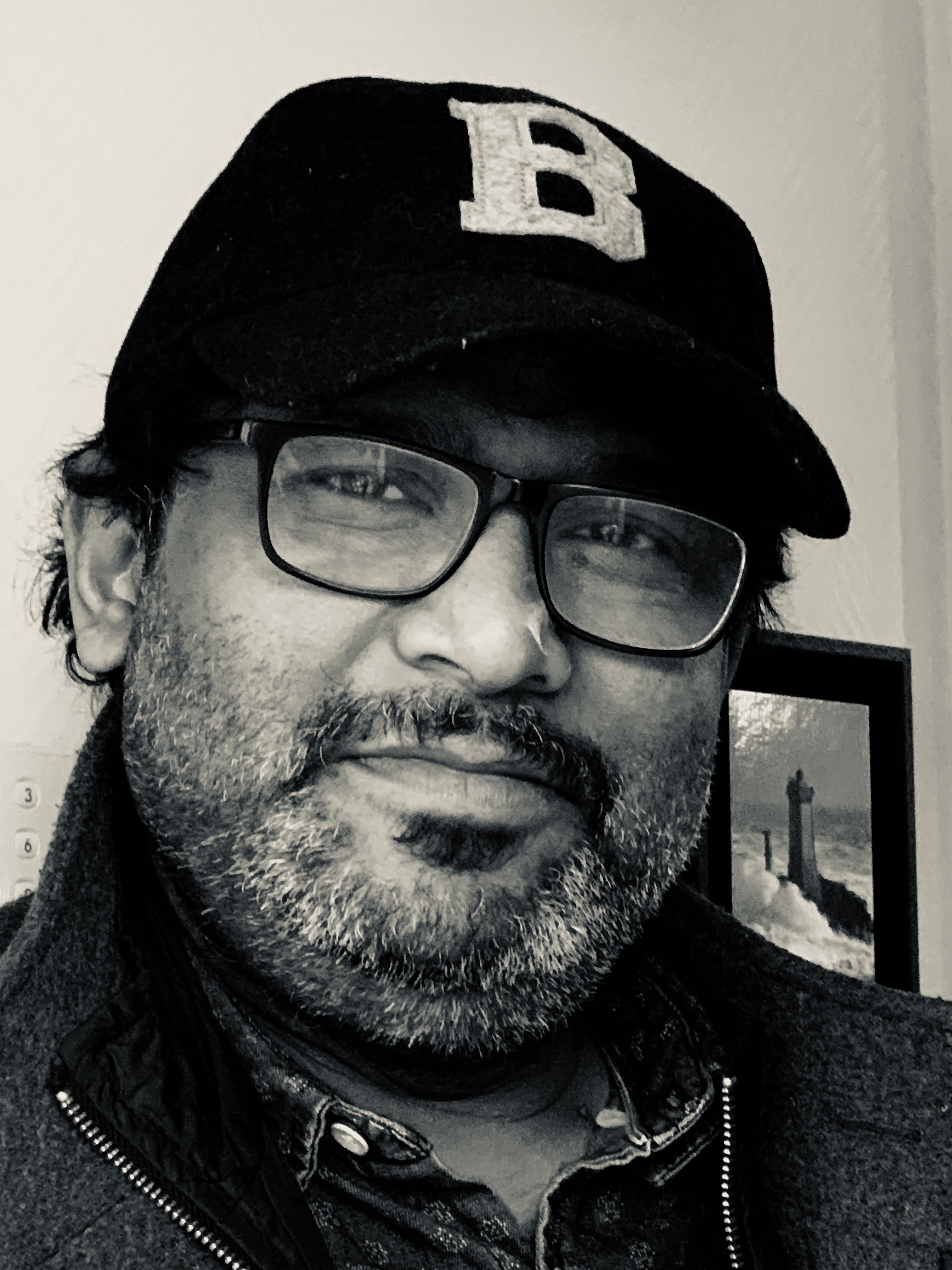
Prof.
Biplab Sanyal
Uppsala University, Sweden
|
Title: Ab initio theory of defect induced complex phenomena in two-dimensional materials
Biplab Sanyal is an Associate Professor at the Department of Physics and Astronomy of Uppsala University, Sweden. He is also the head of the Materials theory division and the Director of the International Master program in Materials science. After completing Ph.D. studies in India in 1999, he joined Brock University, Canada as a post-doctoral fellow with Prof. S. K. Bose. He was a postdoctoral fellow at Uppsala University from 2000-2003. Then he became an Assistant Professor in 2003 and an Associate Professor in 2011. He has supervised 18 Ph.D. students and 6 postdoctoral fellows. His research interests lie in 2D materials, magnetism, biomolecules, electron correlation, amorphous materials, electronic transport, Monte-Carlo simulations, lattice and magnetization dynamics. He has published 260 articles, 2 books and 10 book chapters.
|
|
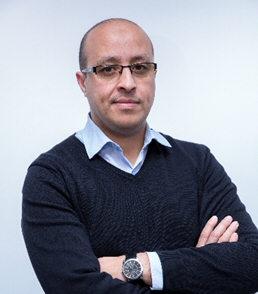
Prof.
Hicham Ben
youcef
Mohammed VI polytechnic University Morocco
|
Title: Green Hydrogen: Building A New Economic Ecosystem In Morocco
Prof. Ben youcef obtained his Ph.D (Chemistry) in 2009 from the Swiss Federal Institute of Technology Zurich (ETHZ), Switzerland. Thereafter and as a Postdoctoral researcher at Paul Scherrer Institut (PSI), Switzerland, he participated in "S-chain project" and "Green Power project", joint venture between Belenos Clean Power (Swatch® Group), Ecole Polytechnique Fédérale de Lausanne (EPFL) and PSI for the development of zero-emission car concept based on low temperature Fuel Cells. From 2011 until 2014 and between 2016 and 2017 he joined Chemspeed Technologies AG (Swiss company specialized in automation and high-throughput solutions and workflows design for chemical-biochemical process industry and applied research) as a R&D automation chemist. In between these positions, he was a scientific researcher at CICenergigune in Spain, working on the development of cathode materials for Lithium-Sulfur batteries and organic electrodes and polymer electrolyte materials for All-Solid-State Lithium/Sodium batteries. Pr. Ben youcef joined Mohammed VI Polytechnic University (UM6P) at the end of 2017. His main research interests are the development of new and smart materials using High Throughput automated workflows for different applications, such as electrochemical energy storage and conversion (Fuel cells, Batteries) towards competitive targets (performance, durability and cost). At UM6P, Pr. Ben youcef is the head of the High Throughput Multidisciplinary Research Laboratory.
|
|
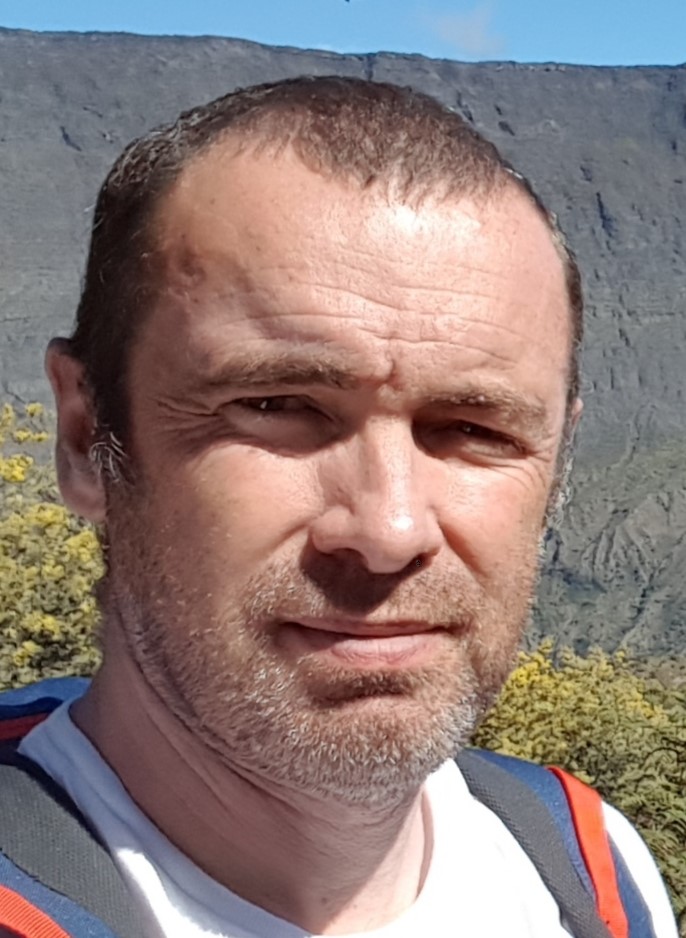
Prof.
Samuel Jouen
Normandy
University in France
|
Title: Recycling of Rare Earth Containing Permanent Magnets
Dr Samuel JOUEN is an associate professor in the Materials Physics Group (GPM UMR CNRS 6634) at the Normandy University in France. He obtained his PhD in 2000 in the field of metallic materials atmospheric corrosion mechanisms. His work is mainly focused on the structure-property relationships in metallic and inorganic materials by means of spectroscopic characterization (Mössbauer spectrometry, infrared and Raman spectroscopy) and X-ray diffraction. For the past ten years, his research has mainly concerned the study of many functional oxides, the mechanisms of oxidation of metals at high temperature (development of refractory alloys for the petrochemical industry, destruction of satellite or space debris during their atmospheric re-entry…). He also contributes to the development of innovative recycling processes for permanent magnets and Li-ion batteries.
|
|
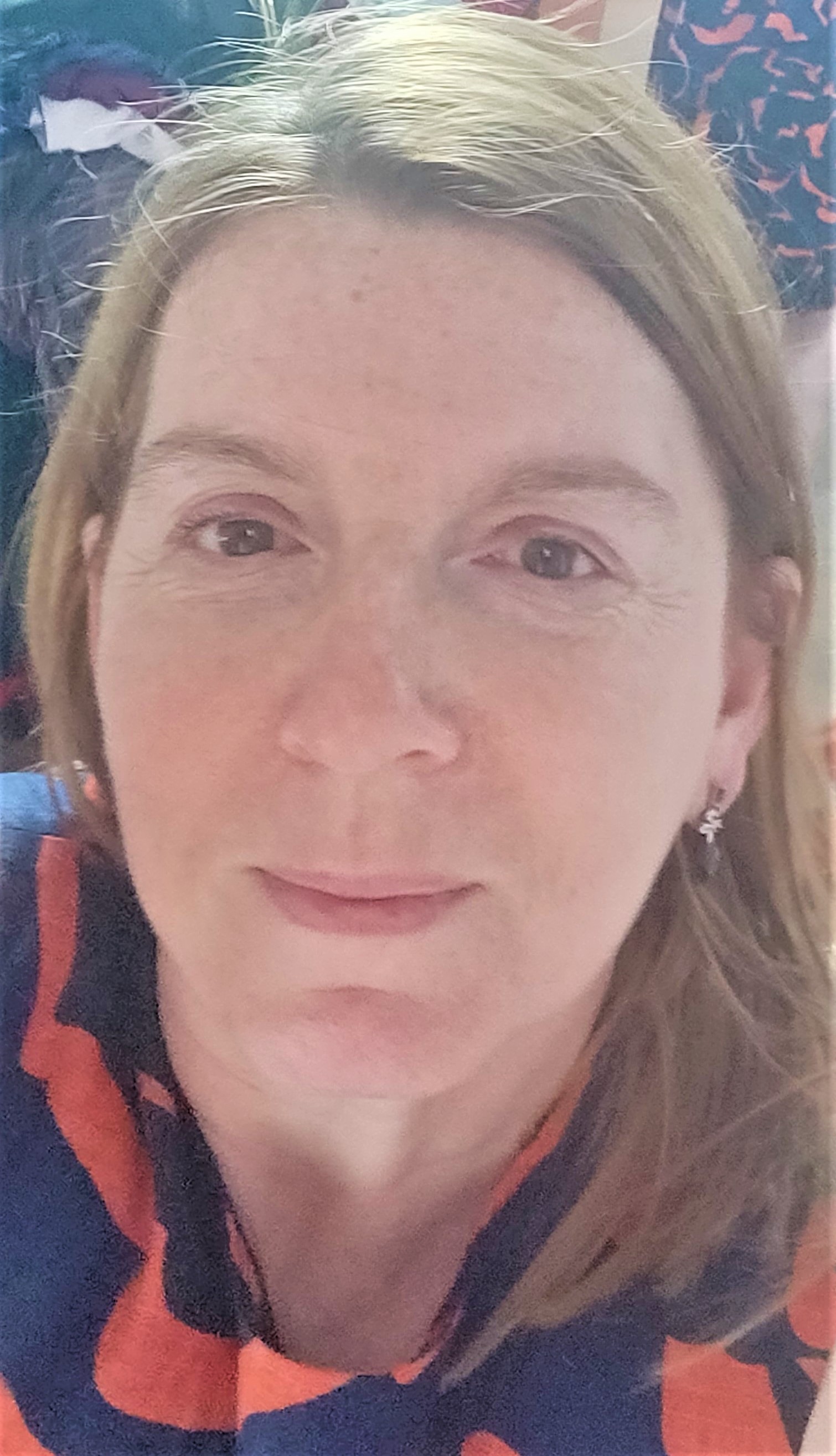
Prof.
Virginie
Nachbaur
Normandy
University, France
|
Title: A sustainable process for extracting valuable elements from Li-ion battery waste
Virginie Nachbaur is an Associate Professor in Normandy University (France). She obtained her Ph.D. in 1997 from Burgundy University (France). Her work is focused on synthesis and caracterisation of oxides and metals in relation to their magnetic properties, but her field of research is extended to protective coatings elaboration, and more recently, recycling. She develops sustainable recycling processes with low environmental impact, concerning Rare Earth Elements containing permanent magnets and Li-ion batteries. In this field, she filed two patents carried by the CNRS and Normandy University. She is involved in a French ANR project “RAP” concerning magnets recycling and she is the leader of a French CNRS Prématuration project “CARY-ION” which aims to scale up the process which is now at a TRL level of 4.
|
|
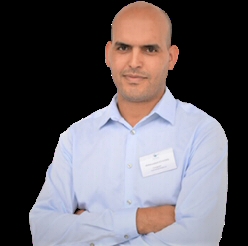
Prof.
Abdelouahed Elfatimy
Mohammed VI polytechnic
University, Morocco
|
Title: Universal Light Detector Based On Graphene Quantum Dot
Abdelouahad El Fatimy got his B.S and M.S. degrees (DEA) in physics and received his Ph.D. degree in condensed matter physics in June 2007 under the supervision of Pr. Wojciech Knap at Montpellier University, France. He continued his research in the Terahertz time-domain Spectroscopy as a post-doc fellow at Bordeaux University and as visiting research fellow at the Research Institute of Electrical Communication, Tohoku University, Japan, financed by CNRS and JSPS Research Fellowship Grant Program from 2007 to March 2009. He then joined the Astronomy Instrumentation Group at the School of Physics and Astronomy, Cardiff University, United Kingdom, for three years to design the 1st GaAs bolometer. In 2012, He went back to Montpellier University and CNRS as a senior researcher and co-funded the T-waves company. In 2014, he decided to join the physics department at Georgetown University, Washington, USA, where he investigated the fundamental physics related to detecting and generating THz photons in Graphene and managed a scientific project between Georgetown University and Stuttgart University. In September 2017, he was a physics Professor at Ecole Centrale of Casablanca, Morocco, leading the physics department. In August 2021, he was appointed as a physics professor at the Mohammed VI Polytechnic University, helping establish the Institute of Applied Physics.
Dr. Abdelouahad El Fatimy has achieved international recognition as a Terahertz photonics and device physics leader. He has been exploring the frontiers of nanoscale physics and Terahertz excitations in solids for many years. Using plasmonics devices, Dr. A. El Fatimy made the world's first observation of the coherent and tunable terahertz photons detection and demonstrated the world's first room-temperature coherent terahertz emission by pushing nanometer field-effect transistors toward Dyakonov – Shur instabilities. He also made the first world observation of the extreme sensitivity of Graphene-based light devices and other essential research discoveries. His works are at the forefront of nanoscale physics and light science, collaborating with academic institutions, federal laboratories, and the private sector. Dr. A. El Fatimy has established an outstanding inter-departmental, national, and international collaboration model, exemplified by his recent publications and national and international conferences. He published more than fifty peer-reviewed publications in prestigious scientific journals such as Nature Nanotechnology, Carbon, Nanophotonics, Physical Review Letter, and Nanotechnology. In addition, more than 40 invited talks in national and international conferences and membership in professional societies such as APS.
|
|
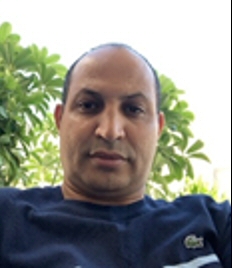
Prof. Khalid Hoummada
Aix-Marseille University, France
|
Title: Thermoelectric Thin Films For Near-room Temperature Energy Harvesting
Prof. Dr Khalid Hoummada is a full Professor at Aix-Marseille University France and the co-head of the Reactivity and Diffusion at Interfaces (RDI) team at IM2NP. His research work is mainly focused on materials transport and associated phase transformations at the nanoscale. His approach is coupling between in-situ measurements, the use of physical models and ex-situ measurements in particular the atom probe tomography (APT). He has authored/co-authored over 100 articles, conference papers, and project reports and has given more than 21 invited talks at international conferences, universities, and laboratories. His publications have received more than 1469 citations and his current Hirsch index is h = 20.
|
|

Prof.
Johannes Barth
TUM, Bavaria, Germany
|
Title: Molecular nanosystems at interfaces
After studying physics at Munich’s Ludwig Maximilians University J. Barth received his doctorate in physical chemistry based on studies with G. Ertl at the Fritz Haber Institute of the Max Planck Society (1992). He was an IBM Postdoctoral Fellow at the IBM Almaden Research Center in San Jose, and spent over a twelve years at the École Polytechnique Fédérale de Lausanne, where he received the venia legendi. Prior to his nomination as a TUM full professor in 2007, he was a Canada Research Chair and Associate Professor at the University of British Columbia in Vancouver.
Research activities center on physicochemical phenomena at interfaces and molecular nanoscience.
|
|
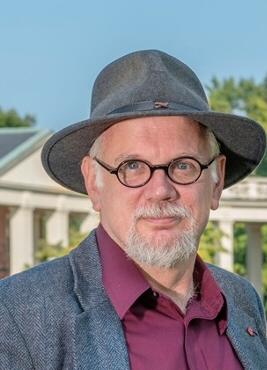
Dr.
Norman Fraley
Wake Forest University, USA
|
Title: Continuous-flow Esterification Using A Sulfonated Hydrothermal Carbon Catalyst
Dr. Norman Fraley's recent research activity mainly deals with the valorization of waste materials to create catalysts and advanced biofuels while working with Dr. Abdessadek Lachgar at Wake Forest University where he received his PhD for investigating the use of continuous-flow systems for waste valorization and the characterization of nanoparticulate colloidal amorphous carbon catalysis in Fischer-Speier acid-catalyzed esterification. He has worked for the past 35 years in industry, primarily in instrumental analytical chemistry. His work includes the development of solid-state sensors for low-level hydrazine with NASA, the robotic automation of laboratory operations, database simulation for food nutrition, clinical diagnostics method development, and the design/validation of quantitative methods for over 170 environmental toxins for Eurofins. His expertise is in chemical separations and spectroscopic detection. He currently serves as a review chemist for the US Food and Drug Administration and as lead science faculty in the Sustainability Graduate Program at Wake Forest University.
|
|

Prof.
Jean-Michel Nunzi
Queen's University, Canada
|
Title: Nanostructured photodetectors, sensors and energy harvesting devices.
Prof. Jean-Michel Nunzi graduated from Physique-Chimie Engineering School, Paris 1982. He joined l’Ecole Polytechnique for a PhD on the nonlinear optics of surface plasmons. He was hired full-time Researcher in Organic Photonics at the Atomic Energy Commission (Saclay) in 1984, became head of the Organic Devices Lab in 1995. He joined the Department of Physics at University of Angers as Professor in 2000, built the Plastic Solar Cells Technology Research Team. He moved to Queen’s University as Canada Research Chair in 2006 in which he holds a dual appointment with both the Department of Physics and the Department of Chemistry.
He is an invited professor at Université de Lorraine (France) since 2012, an associate professor at MEPHI (Moscow) since 2016, a research professor at University of Kanazawa (Japan) since 2019, and an adjunct professor at Shoolini University (India) since 2021.
He studies self-organization, organic and nano-photonics, the processing and physics of nanomaterials and devices for life, energy, and sustainability.
He has more than 300 peer-reviewed publications with more than 10000 citations and a H-factor of 54 (Google scholar).
|
|
|
|